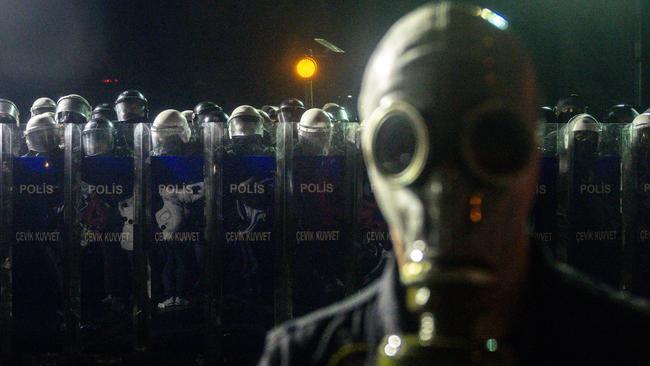Turkey jails top Erdogan rival Ekrem Imamoglu
If Istanbul mayor Ekrem Imamoglu is barred from running for president or is imprisoned, it would represent a significant setback for Turkey’s democracy.

An Istanbul court ordered the arrest of Turkish President Recep Tayyip Erdogan’s top rival on corruption charges, according to state-run media and a copy of the decision viewed by The Wall Street Journal, and the country’s Interior Ministry said it was temporarily removing him from his post as Istanbul mayor.
Police detained the opposition politician, Ekrem Imamoglu, last week as his Republican People’s Party prepared to nominate him as its presidential candidate to run against Erdogan if there is a snap election. Imamoglu denies the allegations against him and says they are politically motivated.
The court ruled that Imamoglu, 53, should remain in custody until he is tried. If he is barred from running for president or is imprisoned, it would represent a significant setback for Turkey’s democracy. Erdogan has held power, first as prime minister and then as president, since 2003.
Imamoglu on Sunday called on Turks to take to the streets for a nonviolent protest. “I stand tall, and will keep my head high,” he said on social media. “I invite our nation to fight for their rights.” Erdogan, 71, who has worked for years to concentrate power, faces a constitutional limit when his current term ends in 2028, but he could run again if Parliament calls an early election or if the constitution is amended.
Some European leaders have criticised Imamoglu’s arrest. U.S. reaction has been muted.
In an interview aired late Friday, President Trump’s Middle East envoy Steve Witkoff didn’t mention the Istanbul mayor’s arrest but said in reference to a call between Trump and Erdogan, “There is just a lot of good, positive news coming out of Turkey right now as a result of that conversation.” After Imamoglu’s detention last week, huge throngs of demonstrators assembled in Istanbul and other cities decrying what they said was an attack on democracy. Police have clashed at times with protesters and arrested dozens of people in connection with the rallies.
“Erdogan at the moment still thinks that he’s holding all the cards, and he thinks that this is the right moment for him to get rid of opposition, ” said Murat Somer, a political scientist at Istanbul’s Ozyegin University.
Erdogan and the Turkish government have rejected the protesters’ concerns, arguing that the opposition is politicising what they say is an independent judicial investigation into the mayor’s affairs.
“If you have the courage, let democracy work, let the law work. Let the courts decide on behalf of the Turkish nation without any pressure,” Erdogan said on Saturday.
Prosecutors have accused Imamoglu of leading a criminal organisation, taking bribes, and an array of financial crimes. When he was first detained, prosecutors also accused him of terrorism-related charges connected to his cooperation with a pro-Kurdish party in a recent election.
He has denied the allegations, some of which his office called “comically trivial.” In Erdogan’s first years in office, he presided over an economic expansion that lifted millions into the middle class. In recent years, a financial crisis wiped out many of those gains. He has also broadened Turkey’s influence as an aspiring global power with the country playing a larger role in Middle Eastern affairs.
Under his leadership, Turkish authorities have also jailed journalists, activists and major politicians on charges that the opposition rejects as a part of a clampdown on dissent.
Imamoglu is widely seen as the strongest candidate to challenge Erdogan in any election. He first became mayor in 2019, wresting control of the Istanbul city government from Erdogan’s party. Last year, Imamoglu helped propel the opposition to power in other cities across the country.
Whether he and the opposition can now mount a sustained protest movement, and how the government responds to the demonstrations, could determine the outcome of the current standoff.
“There is strong social resistance to what is happening now, and I think that is going to shape what happens next.” said Evren Balta, a political scientist at Ozyegin University. “Turkey really has strong party institutionalisation and a strong democratic culture.”
Dow Jones



To join the conversation, please log in. Don't have an account? Register
Join the conversation, you are commenting as Logout